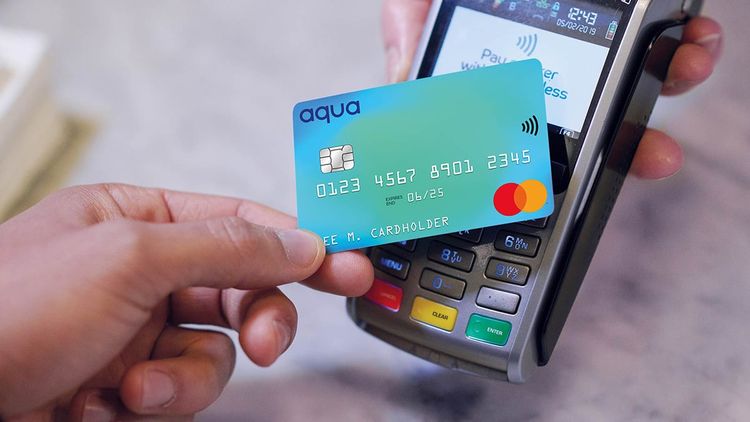In this article
At what age can you get a credit card?
Discover the minimum age to get a credit card in the UK, what you need to apply, and tips for young adults starting their credit journey.

To apply for a credit card in the UK, you must be at least 18 years old. But being 18 isn’t the only criteria you need to be approved for a credit card. Your likelihood of approval also depends on factors like your income, employment status, and credit history.
To help you better understand what you need to be approved for a credit card, we’ll explain why the age requirement exists and provide alternative options for people under 18, along with guidance on what first-time applicants can expect when they apply for their first credit card.
Whether you're looking to build your credit history or help manage everyday spending, it’s important to understand everything you can about credit cards before taking the first step. When you're ready, you can apply for a credit card online through trusted providers offering products designed for new or low-credit applicants.
What is the minimum age for a credit card in the UK?
You need to be at least 18 years old to apply for a credit card in the UK. This is because 18 is the legal age when you can sign a credit agreement and be held responsible for paying back borrowed money. Borrowing money and agreeing to pay it back involves a lot of responsibility, and the law wants to make sure that those applying are old enough to understand and manage those commitments.
However, just because you’ve turned 18 doesn’t automatically mean you’ll get approved. Credit card companies also look at things like your income, job status, and credit history. They need to make sure you can afford to repay what you borrow, so if you’re not earning regularly or don’t have any credit history yet, it might be more difficult to get approved for a standard card.
This means that, if you’re under 18, you won’t be able to get a credit card just yet. However, this doesn’t mean you can’t start building good financial habits early.
Many banks offer prepaid debit cards specifically for teenagers, which can be a great stepping stone. Debit cards can help young people get real-life experience managing their own finances, setting (and sticking to) budgets, and making everyday purchases. By using a debit card responsibly, teens can develop essential financial skills and confidence in handling money. All of this will help prepare them for the responsibilities that come with owning a credit card in the future.
Can you get a credit card under 18 with a parent or guardian?
If you’re under 18 and wondering if you can get a credit card with help from a parent or guardian, the short answer is no, you can’t in the UK.
While some other countries offer this, UK lenders don’t offer joint or co-signed credit card accounts, which means parents can’t add their child as a secondary cardholder or co-signer to help them get a credit card earlier. However, there are plenty of alternatives that can help younger people start managing money and building good financial habits before they turn 18. One of the most popular options is a prepaid debit card or teen account, which lets parents load money onto the card for their child to spend. These cards don’t involve borrowing, so there’s no risk of going into debt and they can be a great way to practice budgeting and money management.
Many banks also offer student accounts for teens aged 16 or over, which often come with features like mobile banking, budgeting tools, and spending alerts. Pairing one of these with a budgeting app can be a great way for young people to learn how to manage their money on a day-to-day basis.
Parents can play a big role here by teaching their kids about how credit works, covering basics like interest rates, minimum payments, and how borrowing affects your credit score. So, when teens do reach the age where they can apply for a credit card, they’re more likely to use it wisely.
What do you need to apply for a credit card at 18?
Becoming 18 marks the point of being able to apply for a credit card in the UK. But how do you actually get a credit card at 18? While this age is the legal starting point, there are a few other requirements you’ll need to meet before a lender will approve your application.
Here’s what you need before you apply:
- Proof of income:
Lenders will want to see that you have a regular form of income, even if that’s from a part-time job or student loan, to make sure you can afford repayments. - UK residency:
You’ll need to be living in the UK to apply for a UK-issued credit card. - Address history:
If you’ve lived at your current address for a while, this helps lenders verify your identity and assess your reliability. - A credit history:
This can be the tricky part for 18-year-olds, as many won’t have a well-established credit record yet.
Because many teens won’t have had much opportunity to build a credit score, it’s common for first-time applicants to struggle with approval for mainstream credit cards. But don’t worry – there are options designed for this stage of life, like student credit cards, credit builder cards, or low-limit starter cards. These options are more accessible and are great for learning how to manage credit while gradually building up your credit score.
At Aqua, we offer specialist cards aimed at helping new applicants build credit from the ground up. With responsible account management, these cards can be a valuable tool for improving your credit score and developing financial independence.
Representative 39.9% APR (variable) on Aqua Classic
Can students get credit cards?
Students aged 18 and over in full-time education can apply for student credit cards. These cards are designed to support young people as they start to manage their money independently. They are a useful entry point for those with limited or no credit history and often come with lower credit limits and more simple eligibility criteria.
To apply, you’ll usually need to prove that you’re enrolled at a legitimate UK university. Lenders could also ask for evidence of a stable income, such as money from a part-time job, a student loan, or financial support from family.
Student credit cards can offer several benefits. Firstly, they help you build a credit history early, which is important for things like future loan applications or renting a flat. Secondly, they can be a useful safety net for managing unexpected costs, and thirdly, they’re a great way to learn budgeting and financial discipline, as long as you use the card wisely.
It’s important to remember that even as a student, you’re responsible for making repayments on time and staying within your limit. Failing to manage a credit card can lead to debt and damage your credit score. However, used well, student cards are a good way to learn and grow financially.
Find out more about the different types of credit cards available, and explore the advantages of using a credit card to build your financial future.
Responsible credit card habits for first-time users
Getting your first credit card is an exciting step toward financial independence, but it also comes with responsibilities. Forming good credit habits early can prepare you for the financial commitment that is owning a credit card and help you avoid common pitfalls.
Here are some simple habits for first-time or young credit card users:
- Always pay on time:
Set up a direct debit to cover at least the minimum payment each month. This helps you avoid late fees and protects your credit score. - Avoid spending up to your credit card’s limit:
Try to keep your spending well below your credit limit. A lower balance shows lenders you’re managing credit responsibly. - Monitor your transactions:
Use your banking app to check activity regularly and stay in control of your spending. - Check your statements:
Reviewing monthly statements helps build financial awareness and can alert you to any unexpected charges or errors. - Stick to a budget:
Only spend what you know you can afford to repay. Remember, credit cards are a borrowing tool.
Following these habits will help you build a solid financial foundation and avoid unnecessary stress. If you do find yourself struggling, there are ways to reduce credit card debt and get back on track.
Common myths about young people and credit cards
When it comes to young people and credit cards, there are many myths and misconceptions that can lead to confusion or hesitation. Let’s clear up a few of the most common ones:
“You should wait until you have a high income to get a credit card”
While a stable income is important, you don’t need to be earning a high salary to apply. Many credit cards are designed for students or young adults with limited income, helping them start building credit from scratch.
“Using credit means going into debt”
This myth often stems from misunderstanding how credit works. If you pay off your balance in full each month, and on time, you can use a credit card without paying interest or getting into debt. In fact, using it responsibly can improve your credit score.
“Credit cards are bad for students“
It's a common misconception that credit cards are ‘bad’ or ‘risky’. Credit cards only become a problem if misused. For students who manage them properly, credit cards can be a great way to learn financial responsibility and prepare for future money borrowing.
These myths might be believed in due to a lack of information, or even previous credit card mistakes, but the reality is more complex. Used in the right way, credit cards can be a valuable tool for young adults. Learn more in our guide to the UK’s top credit myths.
Getting your first credit card is a big milestone, and knowing when and how to take that step makes all the difference. While age is the starting point, building confidence, understanding the responsibilities, and finding the right support are what truly set you up for success.
Whether you're just starting to explore your options or getting ready to apply, it’s important to make informed choices and form healthy financial habits early on in life. And when you are ready, Aqua is here to help you take that first step with products designed to support you as you build credit and gain financial independence.
Take a look at our credit card options to see how we can help you move forward, confidently and responsibly.
Failure to make payments on time or to stay within your credit limit means that you will pay additional charges and may make obtaining credit in the future more expensive and difficult.
Contributors


You might also like
Slide 1 of 3
Your first credit card
Helping you to get started with your first credit card. From choosing the right card to building credit responsibly...

Understanding types of credit cards
Find out more about the common types of credit cards and which is right for you.

How to apply for a credit card
If you’re looking to apply for a credit card then read our comprehensive guide. Learn about eligibility, credit car...
The smart way to build better credit
Aqua is the credit card that gives you the power to improve your credit score
